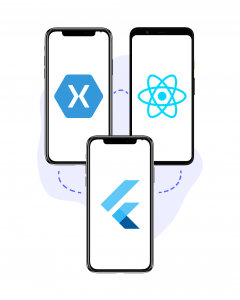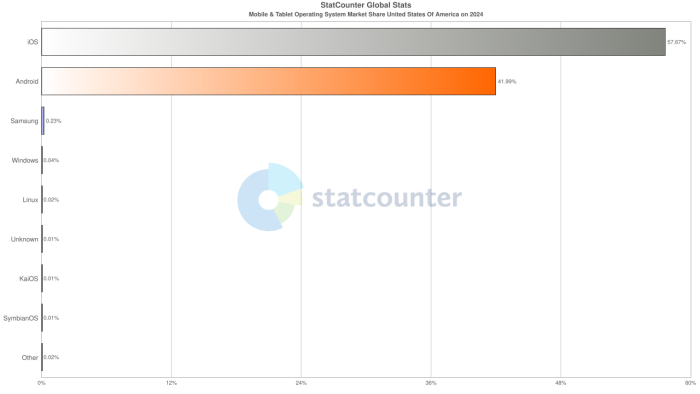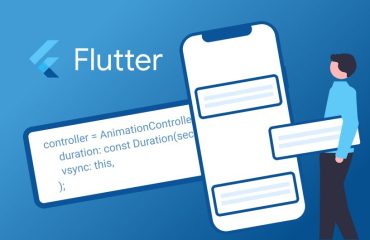If you’re here, your company is likely planning to develop a mobile app, and you’re facing the classic question: Should we start with iOS, Android, or both?
At Big Fish, we’ve guided many clients through this “iOS versus Android” decision. It’s not always a straightforward choice, and there are a number of critical factors to consider before you decide.
Depending on your target audience, one platform might be all you need. However, if you have a broad, diverse user base, developing for both iOS and Android could be the right move.
Let’s break down what you should consider when choosing to build your app for iOS or Android in 2024.
Key Factors to Consider When Choosing a Platform
Choosing the right platform for your app—whether iOS, Android, or both—depends on several key factors.
Here’s what you need to weigh before making your decision.
1. Target Audience
Understanding your users and their smartphone preferences is essential. If you know who will be using your app—whether it’s employees or the general public—you can tailor your platform choice accordingly.
Employees: for internals apps used by your employees, it’s imperative to either create the app for both platforms, or standardize on a single platform by providing company-issued devices. Providing company-issued smartphones has the benefit of simplifying development, support, and maintenance. In industries like healthcare, offering secure, work-specific smartphones also reduces regulatory risks like HIPAA violations.
- Employees who work outdoors: often benefit from rugged Android phones. These devices are built to withstand wear and tear, which makes them ideal for users in harsh environments. Your employees may also be hesitant to use their personal phone (and data plan) for work outdoors. In this case, sticking to an Android app and providing company-issued phones will streamline operations and speed up adoption.
- General public: targeting the general public presents a unique challenge, as you won’t always know what devices they own. If that’s the case, consider mobile phone market data or opt for cross-platform app development to cover all bases.
2. App Functionality and Features
The specific functionality of your app, as well as the environment in which it will be used, can help determine the right platform.
- Data-entry-heavy apps will benefit from larger tablet screens. For example, if your app will be used by healthcare workers or patients entering information, iPads are often the go-to device for their ease of use, security, and brand reliability.
- Field service apps that will be used outdoors or in rugged conditions are better suited for Android devices, which offer a range of durable, weather-resistant phones and tablets.
- Consumer apps designed for customers on-the-go will benefit from cross-platform development, or you could prioritize the dominant platform in your target market and expand later.
3. Development Resources and Budget
Your budget and the resources available for development can significantly impact your platform choice.
- Native development involves creating separate apps for iOS and Android. While this usually delivers the best user experience for each platform, it requires significantly more time and resources. Native apps also benefit from better integration with device-specific features, like Face ID on iOS, or Google Assistant on Android. But, depending on the functionality of your app, it may be that the benefits you get from native app development do not justify the higher costs.
Cross-platform development offers a more cost-effective solution by creating one codebase that can be deployed on both iOS and Android. Frameworks like Flutter, Xamarin, and React Native have matured in recent years, making this a viable option for many businesses that need to manage costs while still reaching a broad audience.
4. Time to Market Considerations
If speed is a priority for your business, the timeline for getting your app to market can be a deciding factor.
- iOS development typically has a shorter timeline than Android. Apple’s ecosystem is more controlled, with fewer devices to support, which means fewer compatibility issues and a faster development process.
- Android development, by contrast, often takes longer due to the variety of devices and operating systems. Android apps need to work across a broader spectrum of hardware, which can increase both development time and testing requirements.
- Cross-platform development can help shorten time to market as you’re building one app for both platforms simultaneously.
5. User Demographics
Finally, consider the demographics of your user base, as this can provide insight into which platform will deliver the best return on investment.
- Income and spending habits: iOS users tend to have higher household incomes and spend more on apps and in-app purchases. If your app involves in-app purchases or subscriptions, iOS may provide higher returns (source).
- Profession: Some industries heavily favor one platform. For example, historically 85% of physicians use Apple devices, making iOS the dominant platform in healthcare.
- Age: iOS tends to attract younger users, particularly in the United States where 58% of iPhone users are aged 18-34 (compared to 41% of Android users). Android holds a slight edge with older generations in the United States, particularly users aged 35 to 54 (source).

Next, let’s look at what the market data says about iPhone versus Android usage, popularity and demographics in 2024.
The Current Mobile Landscape in 2024
iOS and Android Market Share
Globally, Android remains the dominant platform, holding the largest market share (71%) thanks to its widespread adoption in emerging markets and its availability across a vast range of devices at various price points.
iOS, however, maintains a strong lead in the United States (57% in 2024) as you can see in the chart below.
App Consumption and In-App Purchases
In 2024, the gap between iOS and Android users in terms of app consumption and spending remains significant.
iPhone users are substantially more engaged with apps and spend significantly more on in-app purchases compared to their Android counterparts as you can see below.
- Spending on apps: On average, iOS users spend nearly seven times more money on apps than Android users, translating to higher revenue potential for businesses who want to charge to download their app.
- In-app purchases: iOS users are more likely to engage in mobile transactions, making them particularly attractive for businesses relying on monetization strategies like in-app purchases or subscriptions. For example, the average in-app purchase per iPhone user is approximately $1, compared to $0.47 for Android users (source).
This higher spending tendency reflects the broader purchasing behavior of iPhone users, who often come from higher-income demographics and are more willing to spend on premium services (see above).
Conclusion: Ready to Make Your Decision?
Deciding between iOS and Android depends on various factors, from your budget and timeline to the specific use cases of your app.
Cross-platform development is an increasingly viable option that will reduce your initial app development cost and the cost of ongoing app maintenance. Cross-platform development also enables your organization to create an app for both iOS and Android – and avoid the sacrifice of starting with a single platform.
At Big Fish, we specialize in both native iOS and Android development, as well as cross-platform solutions. If you’re still unsure which direction to take, we’re here to help. Let’s start the conversation and build the app that’s right for your business.

 Employees: for internals apps used by your employees, it’s imperative to either create the app for both platforms, or standardize on a single platform by providing company-issued devices. Providing company-issued smartphones has the benefit of simplifying development, support, and maintenance. In industries like healthcare, offering secure, work-specific smartphones also reduces regulatory risks like HIPAA violations.
Employees: for internals apps used by your employees, it’s imperative to either create the app for both platforms, or standardize on a single platform by providing company-issued devices. Providing company-issued smartphones has the benefit of simplifying development, support, and maintenance. In industries like healthcare, offering secure, work-specific smartphones also reduces regulatory risks like HIPAA violations. Cross-platform development offers a more cost-effective solution by creating one codebase that can be deployed on both iOS and Android. Frameworks like
Cross-platform development offers a more cost-effective solution by creating one codebase that can be deployed on both iOS and Android. Frameworks like 





